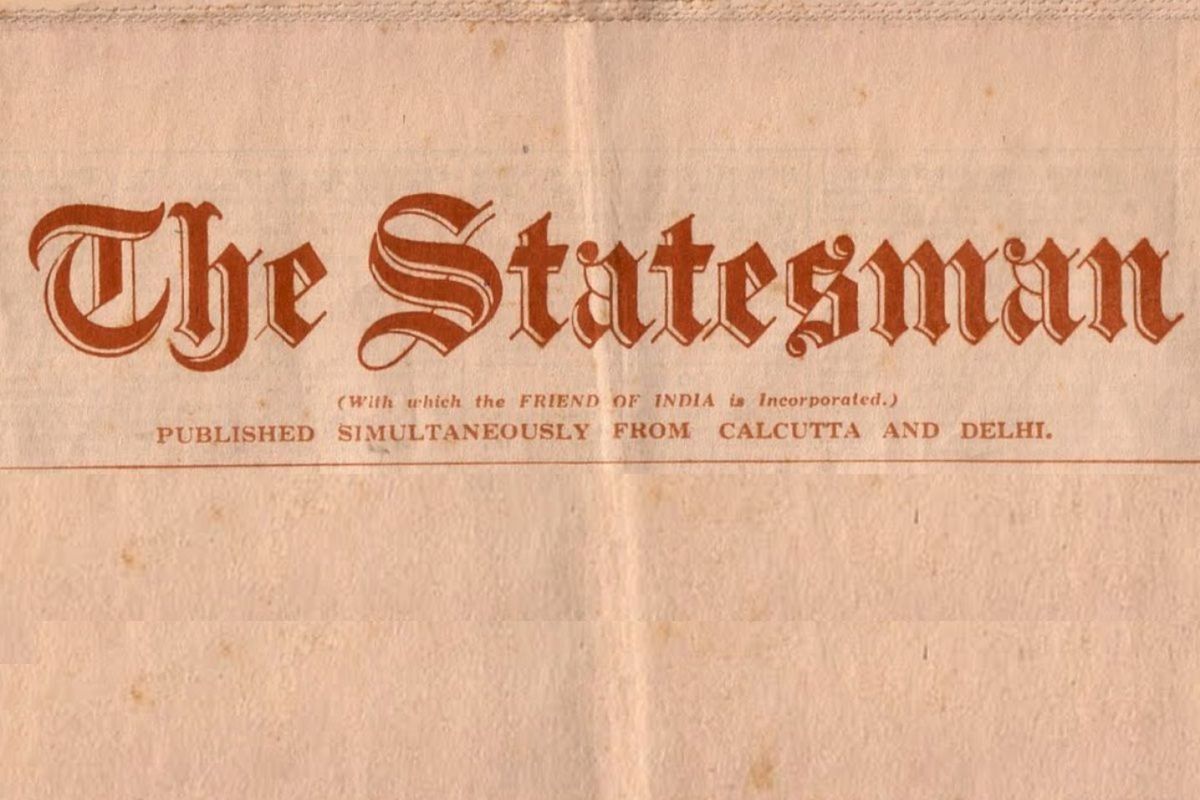Leading women personalities on what it takes to be a woman!
On International Women's Day, The Statesman talked to esteemed women personalities from various fields on what it takes to be a woman in our country and what empowers them.
On this day a century ago, these were some of the news items The Statesman readers got to read about India and the world.

OCCASIONAL NOTE
General W.E.R. Dickson’s achievement in drawing – and for over two years’ maintaining – a cordon of military posts along the whole eastern frontier of Persia is an operation regarding which information is much needed. A correspondent of our Allahabad contemporary is now engaged in filling the lacuna and the story he tells is a fascinating record of triumph gained over almost unimaginable difficulties. “Originally,” he says, “the long line was made to stretch from Quetta to Askabad (on the Russian railway to Turkestan) about 1,200 miles.” It still extends from Quetta to Meshed, a distance of 1,000 miles, and for 600 miles of this distance – from the new advanced terminus of the Nashki railway to Meshed – it is maintained with the aid of a motor-road specially constructed ad hoc. Today it is possible to drive smoothly from railhead to Meshed (the weary journey which camels painfully plodded in four months) in four days, travelling by daylight only. An incessant service of all kinds of transport maintains the posts and delivers the mails in what, before the advent of the pax Britanica, was one of the most barbarous and desolate tracts of country in the whole world. The Indian politician, who opposes the smallest preferences to the rest of the Empire, little knows what, in this single connection, it has cost Great Britain in money, initiative and energy to preserve his country from a Bolshevism which in a few months would have made short work of India’s prosperity and of his own dreams of “self-government.”
Advertisement
ALLEGED BREACH OF TRUST
Advertisement
A case before the Poona Magistrate is one in which the secretary of the Pimplekhurd Co-operative Credit Society, a man named Sawdiram Gopal Mandke, is charged with breach of trust, forgery of documents and falsification of accounts. Accused, it is alleged, was given 500 rupees to distribute in loans to various members. He, however, got them to sign blank application forms and bonds in which the amount of the loan was not entered. He made advances to those asking for them, and afterwards entered the figures. In the case of one Rama Babaji, who had asked for the loan of only Rs 5, he had entered the amount as Rs 350 as being asked for and paid. In this way accused is said to have misappropriated Rs 800. The case is proceeding.
FLOODS IN SPAIN
Continuous rainstorms have caused serious floods, especially in the provinces of Valencia and Murcia. Railway traffic is interrupted and the rice, maize, and spice crops have been destroyed. The town of Cartagena is inundated. Gas and electricity are cut off, and windows and balconies, last night were crowded with people clamouring for help, the mounted police swimming their horses in the darkness had to abandon attempts at relief, but many were rescued with ropes. The cemeteries in the suburbs disgorged their dead, and corpses were conspicuous among the flotsam tossing on torrents in the streets.
BURMA RAILWAYS
For some time past there has been under consideration by the Burma Railway Company, in conjunction with the Burma Mines, Ltd., whose headquarters are at Namtu, the erection of a branch line metre guage in connection with the main line of Burma Railway to leave the main line of the railway at Tahapalai and run to Namtu thirty-six miles away. The present railway of the Burma Mines Co. is of three feet guage, but the new line now decided on is to be of the metre guage now in use on the main line. The object of the new line is to link Namtu and Rangoon by direct rail line, and when this is done special cars will have been constructed for the purpose of carrying out this special traffic, thus bringing the output of the mines straight to the steamer’s side.
HUNGARIAN BOLSHEVIST COMMANDER
The preliminary examination of the former locksmith Janosik, the commander of the Bolshevist Red Guard, began at the police headquarters yesterday. The prisoner bore traces of a severe beating at the hands of the Rumanians. The room was filled with a crowd of witnesses, who testified, among other things, that three hundred persons were executed on the prisoner’s orders at Dursapentele. Janosik denied the charges or pleaded that he acted under orders of the Bolshevist Government. The present Chief of Police interviewed by Reuter said that many bodies of victims of the Bolshevists had been fished out of the Danube including the body of the professor of medicine Benz.
Advertisement